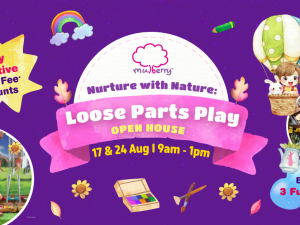
Managing Difficult Behaviours Of Toddlers
Developmental challenges
Children between 1 to 3 years of age are going through a range of cognitive, social, emotional and physical developments that can sometimes create challenging behaviours. Physically they are literally toddling as they begin to walk. Toddlers are realizing that they are separate individuals from their parents and caregivers. This means that they are driven to assert themselves, to communicate their likes and dislikes, and to act independently. During this time, they are also developing language skills that help them express their ideas, wants, and needs. However, their cognitive skills are not well developed and so they may not understand logic and would have a hard time waiting and exercising self-control.
Managing the concept of time
Toddlers have problems with the perception of time. When they want something, they want it now and they have little understanding of how much 5 minutes is. The future might just be a few seconds ahead. So, when you tell your toddler no, I cannot do it now, or that they have to wait, they might interpret that as an outright no or denial of their wants. Explain to your toddler in ways he can understand. Physical evidence is much easier for him. Using egg timers that you can see the numbers or the timer moving would go in some ways to mitigate that. It also helps to train them to understand what three or five minutes feels like. Our brains can perceive time and we can help toddlers to better calibrate time perception with training, so start training your toddler. Other ways to replace time might be the use of discrete measurements such as “We will play on this swing 10 more times before we go back” instead of saying “We will play on this swing 5 more minutes”. Counting to 10 is more familiar and understandable to the toddler than 5 minutes.
Managing emotions
Toddlers are just beginning to become aware of himself as an individual and one area of awareness is his emotions. One starting point is to learn to label his emotions. When you work with him, start with identifying and labelling the emotions. “You are angry because you have to stop playing on the swing. Is that right?” Once you have correctly labelled the emotion, try to identify with that emotion and then move him away from it to a more desirable emotional state. “Johnny, I understand that you are upset. I would be upset too if I have to stop doing something I enjoy. But it is getting late and we need to go home to make dinner. What would you enjoy eating for dinner?” Logic might not trump emotions for a toddler, so offer an alternative like “What would you like to eat for dinner?”
Once your child has named his feelings, you can suggest what he might do to feel better or solve the problem. This helps him learn what to do in the future when he faces a similar challenge. For example, if he is sad because his grandparents just left after a 2-week visit, you can suggest looking at photos of them or drawing them a picture.
Managing independence
As your toddler asserts his independence, try to provide as much “space” for him to make decisions. For example, in choosing his outfit or clothes, give him a limited choice of 2 or 3 types of clothes. When you do that you are also helping him to make good choices. Ask him “Why” he chose what he chose and affirm the decision. Avoid saying things like “That is not a good choice” or “This is better, why don’t you choose this?” By listening with understanding and empathy to why he made that choice, it also helps you to understand your child better and manage his behaviour.
–Dr Henry Toi, Dean of Curriculum, Mulberry Learning







